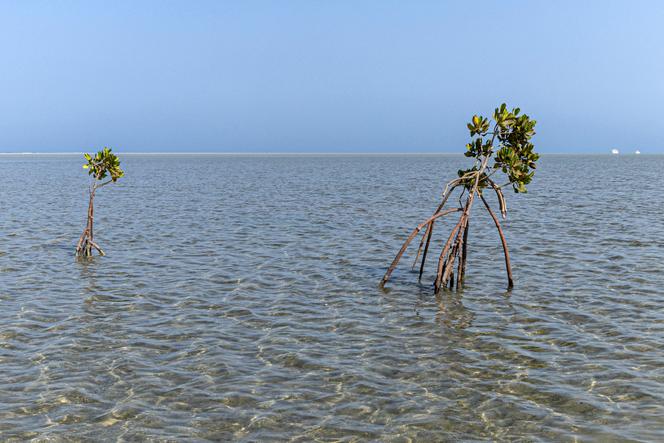
Although the ocean plays a key role in the carbon cycle on this planet – it contains 40 times more carbon than the atmosphere – and is therefore crucial to living conditions on Earth, human activities are damaging it, leading it to absorb increasing excess heat. The warming accounts for 40% of the increasingly rapid rise in average sea levels, which have doubled in the last 30 years to around 9 centimeters.
Physically and chemically, the state of the ocean world is deteriorating. It is losing oxygen – between 0.83% and 2.42% over the last 60 years – becoming more acidic and suffering from widespread contamination, particularly from plastic pollution.
These changes are affecting the entire marine world. Warming, in particular, “from the surface down to the abyss at an unprecedented pace,” said UNESCO, the United Nations Educational, Scientific and Cultural Organization, which published the “State of the Ocean Report 2024” on Monday, June 3.
Written by some 100 authors from 28 countries, this synthesis has been produced by the Intergovernmental Oceanographic Commission (IOC), UNESCO’s body for cooperation on ocean sciences. It aimed to report on the progress of knowledge within the framework of the Decade of Ocean Science for Sustainable Development under the aegis of the United Nations and to identify research gaps.
Loss of seagrass beds and mangroves
It lists the disasters that climate and biodiversity experts have in part already predicted, as well as some less frequently mentioned but equally alarming elements. Proliferations of Alexandrium – a microalga that produces neurotoxins capable of causing paralysis – are listed, for example. The report also details the effects of the loss of seagrass beds, mangroves, mudflats and coastal marshes, estimated at 20% to 35% since 1970, even though they are refuges for wildlife and champions of carbon storage.
For executive secretary of the IOC and assistant director of UNESCO Vidar Helgesen, the worst news to emerge from this gloomy picture is undoubtedly the lack of progress in supporting research, despite the urgency of the situation. However, the issue goes far beyond that, according to the former Norwegian environment minister. “Even if we have to equip ourselves with the means to better understand what’s going on and take the measure of the long-term consequences, we can’t put off action until later,” he said. “We don’t have complete knowledge of what’s happening in the ocean, but we know enough to act! The ocean crisis is dramatic, and every year, every month, every day, it’s getting worse.”
You have 52.06% of this article left to read. The rest is for subscribers only.